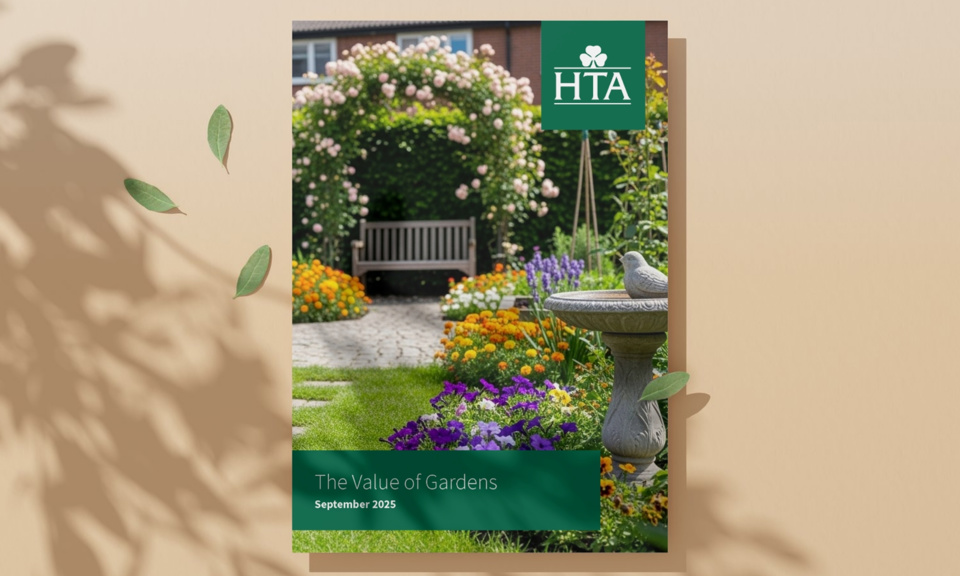HTA report reveals the economic, environmental and health value of Britain’s gardens

25 September 2025
Today, the Horticultural Trades Association (HTA) launched its 'Value of Gardens' report, which, for the first time, quantifies the economic, environmental, and social contributions of the UK’s 22 million private gardens. The report was presented by Fran Barnes, HTA Chief Executive, during her keynote address at the trade association’s Annual Conference.
This report builds on the 2023 ‘Value of Plants’ report, shifting the focus to our domestic gardens – truly a national treasure hiding in plain sight.
Fran Barnes said:
“I believe the UK stands at a crossroads, with a huge opportunity to secure health and environmental benefits for generations to come. The government’s ambition to build 1.5 million new homes presents an opportunity to deliver gardens that ensure that the families who occupy this housing enjoy improved health and social outcomes in the coming decades. Moreover, the green spaces these 1.5m gardens are set to create will play a substantial role in mitigating the effects of climate change, particularly in our towns and cities.
“I’m reminded in this report of Ebeneezer Howard, founder of the garden cities movement over a century ago, and his vision of reconnecting people with nature. His influence on town planning and the lives of millions has been profound and lasting, visible today in so many of the gardens and green spaces in our communities. Now’s the time for us to work together as an industry and society to renew this vision and ambition, to seize the opportunity to create gardens fit for the 21st century, and to ensure that the UK’s gardens continue to be the envy of the world.”
This report outlines key research findings in relation to climate change, including the fact that in urban areas, trees can cool concrete surfaces by 12°C, thereby mitigating the urban heat island effect. Lawns are incredibly effective at slowing water runoff, absorbing 99% of rainfall and reducing flood risk. Furthermore, green spaces actively remove air pollution; a one-metre dense hedge is capable of absorbing the pollution of a car travelling 500 miles in just seven days. They are also crucial habitats for biodiversity, with diverse features that support a wide range of fauna and flora.
The report also reaffirms the profound impact gardens have on health. Eight in ten UK adults agree that gardens benefit their physical health, and 85% report benefits to their mental state. Gardening is a socially inclusive pastime enjoyed by 30 million people, helping to burn calories and reduce the risk of lifestyle-related diseases. Moreover, it offers significant cognitive benefits, with daily gardening linked to a 36% lower risk of dementia in older adults.
Beyond the positive impact on our health and environment, the economics also stack up. The environmental horticulture industry, which supports our gardens from 'dahlias to decking,' contributes a significant £38 billion to the UK economy and employs 722,000 people. The HTA research reveals that for every additional square metre of garden space, an extra £2.01 is spent annually on plants and products. With the government's plan to build 1.5 million new homes, ensuring adequately sized gardens – such as the average 200 sq m – could unlock a staggering £64.7 billion in consumer spending over the next century.
The full report can be accessed here: https://hta.org.uk/value-of-gardens

